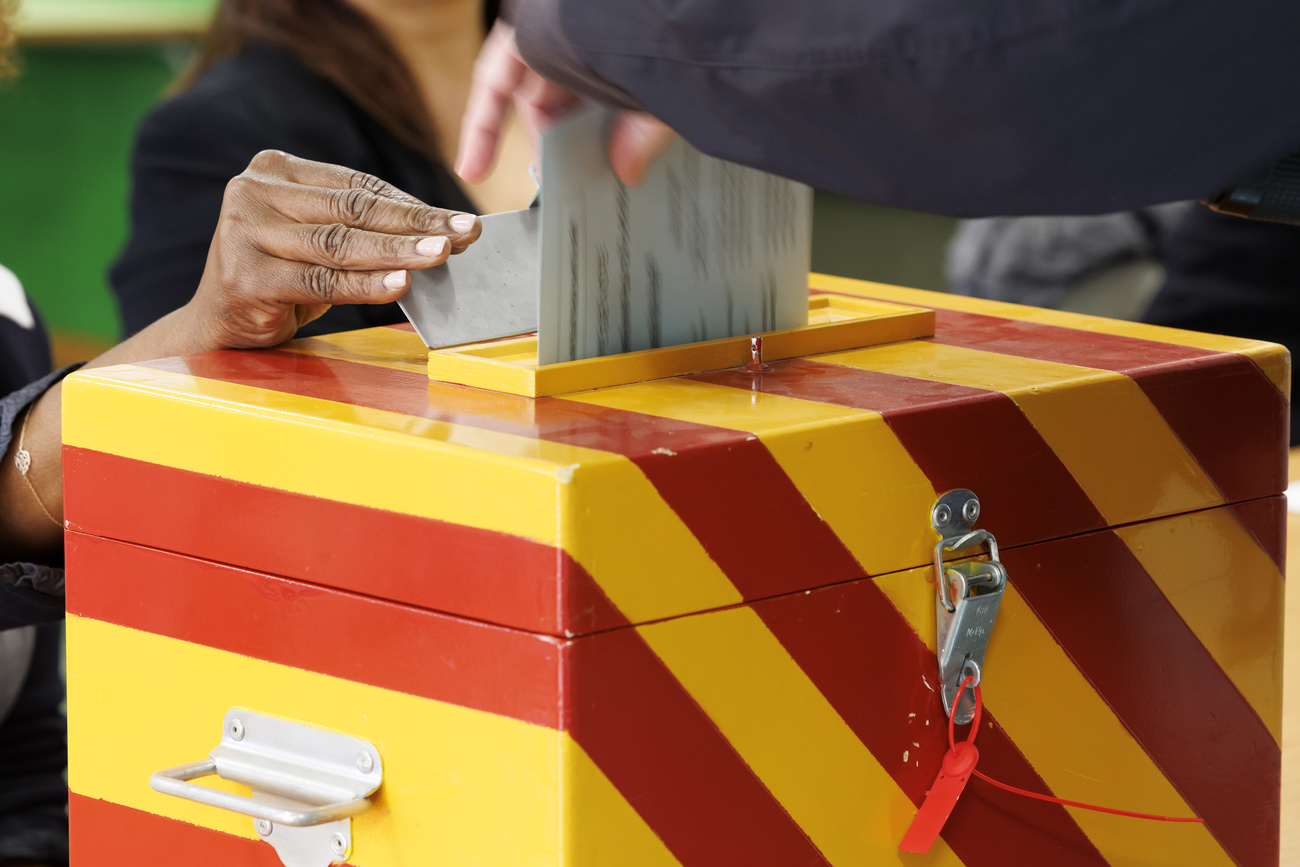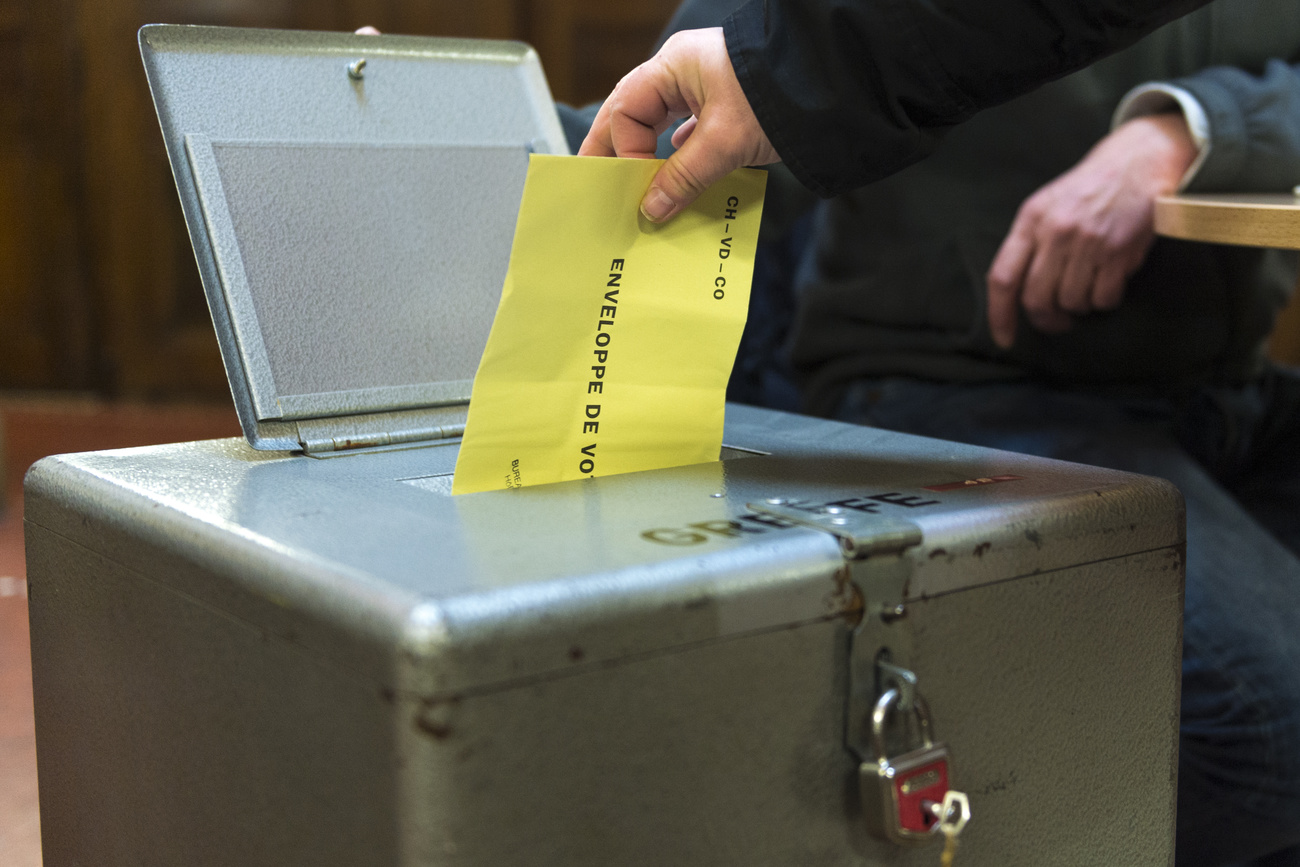Voting rights for foreigners: Why this right is rarely used
Voting without a Swiss passport? This is possible in around 30 Graubünden municipalities. A right that is rarely used, however.
To what extent are foreigners allowed to have a say and participate in decisions in Switzerland? This question goes back a long way: 175 years ago, the canton of Neuchâtel introduced the right for foreigners to vote at the municipal level.
German-speaking Switzerland is catching up
Since then, the right of foreigners to vote and stand for election has spread further. It is now a reality, especially in western Switzerland at the municipal and cantonal level in Neuchâtel and Jura.
In German-speaking Switzerland, the right to vote and to stand for election for foreigners only applies in a few municipalities, although this trend is increasing. The canton of Graubünden in particular is considered a stronghold of the right to vote for foreigners.
In the mountain canton, more than 30 municipalities have now introduced voting rights for foreigners – and the capital Chur could soon follow, as the local council recently confirmed.
The conditions under which foreigners are allowed to vote or elect representatives in the cantons and municipalities vary.
In the canton of Neuchâtel, you must have lived there for at least five years and have a permanent residence permit. In the canton of Jura , you can vote or elect politicians if you have lived in Switzerland for at least ten years and in the canton for at least one year.
In Vals in canton Graubünden, foreigners with a residence permit are allowed to vote after ten years of residence. In Arosa it takes half the time.
In four municipalities in Appenzell Outer Rhodes , foreigners are allowed to have a say if they have lived in Switzerland for ten years and in the canton for five years.
Since 2013, all people with a “C” residence permit and at least five years of residence in the municipality have been allowed to have a say in Arosa. “We want that people of other nationalities feel at home here. They can participate in political village life, which leads to greater integration,” says the mayor, Yvonne Altmann.
Rights are rarely exercised
“People feel that they are being taken seriously and can have a say if they want to – but they don’t have to,” explains Urs Niederegger, municipal clerk of La Punt Chamues-ch. There, too, foreigners have the right to vote, but only a few make use of it.
According to Niederegger, of the approximately 40 eligible voters, only four to six people attend the municipal meetings. So far, no one with a “C” permit has stood for election to the municipal parliament.
Similarities to women’s suffrage
Even though foreigners can have a say in politics, they do so only hesitantly. Voter turnout among foreigners is significantly lower than that of Swiss citizens, as a study by the University of Neuchâtel showed last year.
Daniel Kübler, professor of political science at the University of Zurich, sees this as a typical phenomenon in the expansion of political rights: groups that have historically been excluded from such rights must first learn to identify with them.
Kübler draws a parallel to the introduction of women’s suffrage: women who grew up before the introduction of the suffrage were also less likely to vote or vote for a long time. “Many women have not been politically socialised in such a way that they are even allowed to vote or vote,” and this is still reflected in voter turnout today.
Adapted from German by DeepL/ac

In compliance with the JTI standards
More: SWI swissinfo.ch certified by the Journalism Trust Initiative











You can find an overview of ongoing debates with our journalists here . Please join us!
If you want to start a conversation about a topic raised in this article or want to report factual errors, email us at english@swissinfo.ch.